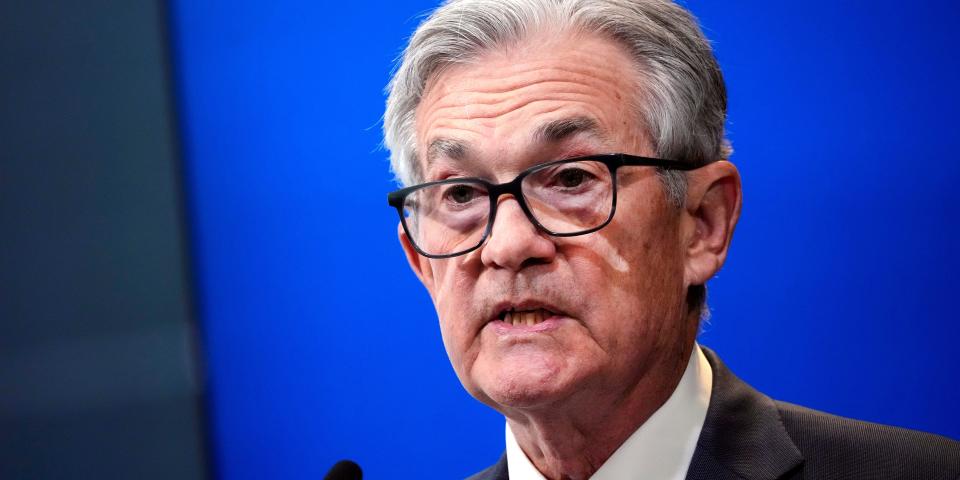Why the Fed may want to cut rates to tame inflation, according to BlackRock's bond chief

The Fed has a strong case to lower interest rates, according to BlackRock's Rick Rieder.
The bond chief said high rates may stoke inflation, as the economy has shifted to being a net creditor.
"I would lay out an argument that actually, if you cut interest rates, you bring down inflation," Rieder said.
It might sound counterintuitive, but the Federal Reserve should cut rates to tackle inflation.
In an interview with Bloomberg TV, BlackRock's bond chief Rick Rieder argued that the Fed needs to loosen monetary policy before inflation falls.
That's partly because high interest rates may actually be stoking inflation, thanks to the huge transfer of money in the economy from borrowers to lender, Rieder said.
Cash in the economy has shifted from the public sector to the private sector, which is a net creditor, Rieder said. That means those companies — and the middle- to high-income workers at those firms – are actually benefitting from high interest rates, as they're benefiting from interest payments.
In theory, that could raise spending among middle- to high-income consumers, raising prices throughout the economy.
"I'm not certain that raising interest rates actually brings down inflation. In fact, I would lay out an argument that actually, if you cut interest rates, you bring down inflation," Rieder said.
Others on Wall Street have made that argument despite it going against conventional wisdom. High interest rates could also be responsible for keeping shelter costs elevated, JPMorgan strategists recently said, suggesting that rate cuts were needed for any "meaningful downward pressure" on shelter inflation, which has been a big input into the elevated consumer price index readings in recent months.
Inflation has come down dramatically from its peak, another reason rate cuts are in order, Rieder added. Central bankers have raised rates 525 basis points since March 2022, and the Fed's preferred inflation gauge clocked in at 2.5% in March, close to its official 2% target.
The economy also looks pretty stable, another green light for the Fed to pivot from its restrictive policy, Rieder said.
"As long as you're price-stable, employing a lot of people, growing the size of the workforce, and moderating a little bit on the growth side, it's pretty good," he added of the economy.
Yet, Fed officials have suggested interest rates are staying higher for longer, and markets have already dialed back their expectations for rate cuts this year. Investors see just one to three rate cuts by December, according to the CME FedWatch tool, down from as many as seven expected at the beginning of the year.
Read the original article on Business Insider

 Yahoo Finance
Yahoo Finance 